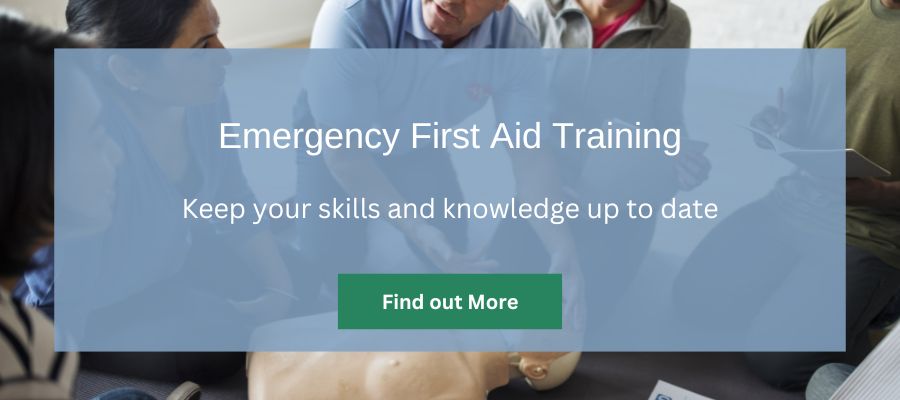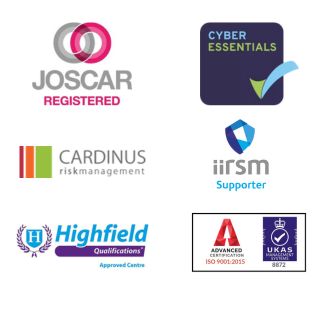Tips for Hosting a Street Party
 If you are thinking about hosting a party to celebrate the King’s Coronation, it is always a good idea to think about the possible risks that could cause injury to people attending your party. You should think about how you can minimise things going wrong, and having a back up plan to ensure that you can celebrate the event successfully.
If you are thinking about hosting a party to celebrate the King’s Coronation, it is always a good idea to think about the possible risks that could cause injury to people attending your party. You should think about how you can minimise things going wrong, and having a back up plan to ensure that you can celebrate the event successfully.
Some of these hints and tips should help give an idea of some of the most common hazards, with a way in ensuring that they are controlled safely.
General
- Ensure that there are a number of people who have access to a phone so that the emergency services can be called as quickly as possible if needed.
- Ensure all trip hazards (electrical cables, ropes etc.,) are removed as far as reasonably practicable, or secured if they cannot be removed.
- Ensure there are competent people responsible for various activities. Applies particularly to anything involving electrical equipment, any inflatables and for running the barbecue.
- Use safe equipment – any equipment used must be in a safe condition and also suitable for the purpose you are going to use it for.
- Ensure everyone who may be affected by the event knows what is planned and are ok with it. E.g., date and duration of the event, any road closures, increased noise to name a few.
- Activities have been carefully looked at and that the risk of someone hurting themselves is reduced to a minimum. i.e., warning signs near items that can’t be moved, barriers to protect people etc.,
Noise
Hopefully everyone in your area will be attending your event so there won’t be anyone to disturb. However due to various reasons not everyone may want to party or hear other people partying throughout the night. If there are residential properties nearby here are a few handy hints to try to ensure that everyone has a night to remember.
- Notify any near neighbours of your event, the time it will finish and a name and mobile telephone number for them to contact if they are disturbed by it.
- Carry out regular checks outside your event to ensure that noise is not causing any disturbance to nearby residents, if it is then turn down the volume.
- The level of noise acceptable in the middle of the afternoon might not be as acceptable at 7 o’clock at night. Therefore, make sure the music level is lowered later in the evening when children or other local residents might be trying to get to sleep.
- Ensure that partying does not carry on outside the area of your event and that partygoers consider neighbouring residents when they leave.
Barbecues
- The biggest risk with barbecues is that people may be pushed against them in crowded conditions.
- Consider using a table between crowds and the barbecue. A responsible adult should be in charge.
- Remember to keep barbecues away from flammable or explosive articles such as canvas awnings and gas cylinders.
Electrical safety
- All electrical equipment should be safe and in good working order. All electrical work should be done by a competent electrician.
- Extension cables shouldn’t run across the road or pavement where they can be tripped over or damaged. If you can’t avoid this, you should protect the cables using purpose made rubber strips. You can normally buy these in most large DIY shops.
- Electrical equipment used outside must be protected by a 30mA RCD (circuit breaker) and be suitable for outdoor use. RCDs are cheap to buy and can be found in most DIY shops.
- Make sure all electrical equipment is not used near to any sources of water. Think about how you will protect electrical equipment if it rains.
- Make sure you know how to turn off the power supply if needed in an emergency situation.
Generators
- Check that it has an integral circuit breaker, it is earthed and that it is sited in a well-ventilated and dry area. Remember a generator gets hot, so ideally you should use barriers to stop people getting too close.
- If you have to refuel your generator, make sure it is switched off and cool before doing so.
Gas cylinders and equipment
- All equipment should be in good working order and all connections must be correctly secured.
- Use only flexible hoses that are not cracked.
- Test for leaks if necessary using soapy water and look for bubbles. Ensure the connector is properly coupled to the supply.
- Store spare cylinders upright and in such a way that they won’t get knocked over and where they are away from heat and flames.
- Make sure gas rings and burners are not near to flammable materials such as gazebos.
- Disconnect the gas immediately after use.
Fire
- If there is a fire make sure the Fire Brigade is called immediately and get people away from the area. Remember, you will need to move barriers to let the fire engines into your street.
- Only try to fight the fire yourself if it is small and you can do so without increasing the risk to yourself or others.
- If gas cylinders are involved do not throw water over them. Tell the Fire Brigade the number and location of the cylinders.
- Providing it is safe to do so, disconnect the gas if there is fire present.
- If the fire is near to homes where you know somebody is in, alert them to the fire if it is safe to do so.
Food Hygiene.
- Any food not eaten or disposed of needs to be placed in the fridge once cooled down. Don’t leave it out overnight if you’re intending to eat it further down the line.
- Always check food is properly cooked, particularly chicken and pork products. If in doubt, cut it open and check for any signs of pink.
Inflatables
- Hire from a reputable company and make sure it is inflated, anchored and used according to their advice.
- Make sure that test and insurance certificates are current.
- Make sure that a responsible person is in charge at all times and that they have enough helpers.
- Fence off the pump, generator and any anchor points to prevent trips, and tampering.
- Users must remove shoes, glasses and any hard or sharp objects that they are carrying or wearing.
- Don’t allow it to become overcrowded, stop any horseplay and separate older, more boisterous children from younger ones.
- Adults should only be allowed on to assist small children. Under no circumstances allow adults on if they appear to have been drinking alcohol.
- Don’t allow anyone to bounce on the front step, or to climb or hang on outside walls.
Using ladders
If you are using ladders or stepladders to put up bunting, flags or other decorations, think about the following:
- Make sure the ladder is in a safe condition, that the ground is firm, level and not slippery, and that you use that ladder for short jobs only (around 30 minutes).
- Do not overreach sideways – move the ladder if necessary.
- Don’t carry heavy or awkward objects up the ladder.
If you are using a straight ladder:
- Lean it against a secure resting point (not a plastic gutter). Ask someone to hold the bottom of the ladder.
- Have it at the correct angle of 1 in 4.
- Don’t work off the top 3 rungs – these provide a handhold and not a foothold!
- Keep 3 points of contact with the ladder while working (2 feet and 1 hand).
If you are using a stepladder
- Open fully and use locking devices.
- Don’t work off the top 3 steps unless you have a safe handhold on the steps.
Alcohol
- If you have alcohol at your event, it is important to ensure those under 18 years of age do not drink alcohol in a street. It is an offence under the terms of the Confiscation of Alcohol (Young Persons) Act 1997.
- If you are selling alcohol, it is an offence not to have the relevant licence. For example, if there is a pub in your road closure area, they are not allowed to sell alcohol to be consumed outside of the pub, unless it is already allowed on premises licence.
- Drink responsibly and in moderation. If you have people who have driven to the event, ensure that they do not try to drive if they have had alcohol.
- Think about the next morning too – allow yourself a sufficient period of time since you last had a drink before driving the next day.
Water / Legionella
- If the weather permits and you get those paddling pools out, remember to give them a good clean first. It is likely that they’ve been sat in the shed over the winter with bits of water in, so there is a risk of legionella bacteria being present. Clean them with hot water and chlorine first before allowing anyone in them.
- The same applies for water pistols and other water toys. The lack of use will likely mean that water has festered over the winter, bacteria will be present and now been warmed up. Clean them first with hot water and wiped down before being used.
Wishing Everyone a lot of Fun!
Above all we hope everything goes to plan and everyone has fun and stays safe!






